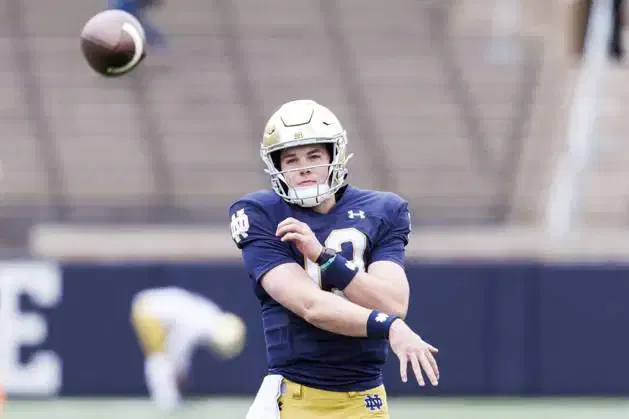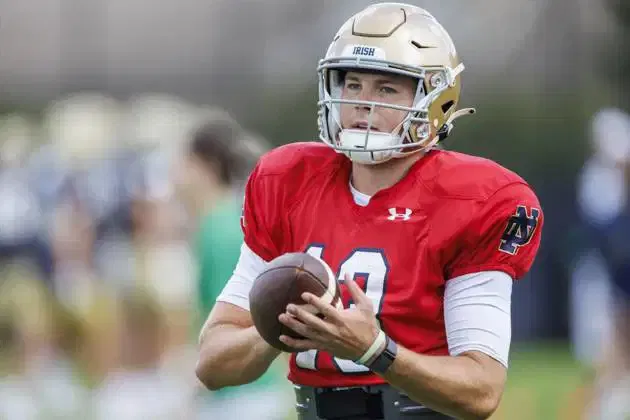
This piece explores the transformative impact of Name, Image, and Likeness (NIL) on college football, highlighting how Riley Leonard, Notre Dame’s standout quarterback, embodies a unique, team-oriented approach amidst the NIL frenzy. Here’s the breakdown:
1. The NIL Revolution in College Football
NIL has shifted the paradigm in college sports, allowing athletes to capitalize on their personal brand. It’s no longer just about on-field performance; NIL valuation now plays a critical role in shaping careers and team dynamics. The case of Bryce Underwood, who chose Michigan influenced by NIL opportunities, exemplifies this impact.

2. Riley Leonard’s Journey to Notre Dame
Leonard transferred from Duke to Notre Dame for the 2024-25 season, citing the program’s integrity, team spirit, and development-focused environment under coach Marcus Freeman. His debut season was a resounding success, culminating in an 11-1 record and significant personal contributions.
3. NIL at Notre Dame
Notre Dame’s proactive approach to NIL stands out:
- Rockne Athletics Fund: Provided over $20.4 million in student-athlete support in 2023-24.
- Financial Aid: Covered more than 50% of the Athletics Department’s scholarship costs, reflecting a robust system to uplift athletes both financially and developmentally.
4. Riley Leonard’s Generosity and Leadership
Leonard exemplifies servant leadership in the NIL era:
- Revenue Sharing: He made headlines by distributing his $1.1 million NIL earnings among his offensive linemen, fostering a strong team spirit.
- Perspective: “I try to be a servant leader… showing these guys that I’m no better than them,” he shared, emphasizing humility and camaraderie.
5. Financial Literacy and Life Skills
Leonard also praised Notre Dame for its focus on financial literacy, teaching athletes how to save and invest. This approach equips players for life beyond football, a hallmark of the Fighting Irish program.
Conclusion
In an NIL-dominated landscape, Leonard’s actions underscore the potential for athletes to use their newfound earning power to strengthen team bonds and uphold values of humility and generosity. His approach and Notre Dame’s robust NIL support system set a powerful precedent for the future of college football.
What’s your take on Riley Leonard’s team-first NIL philosophy? Could it inspire broader change in college sports?